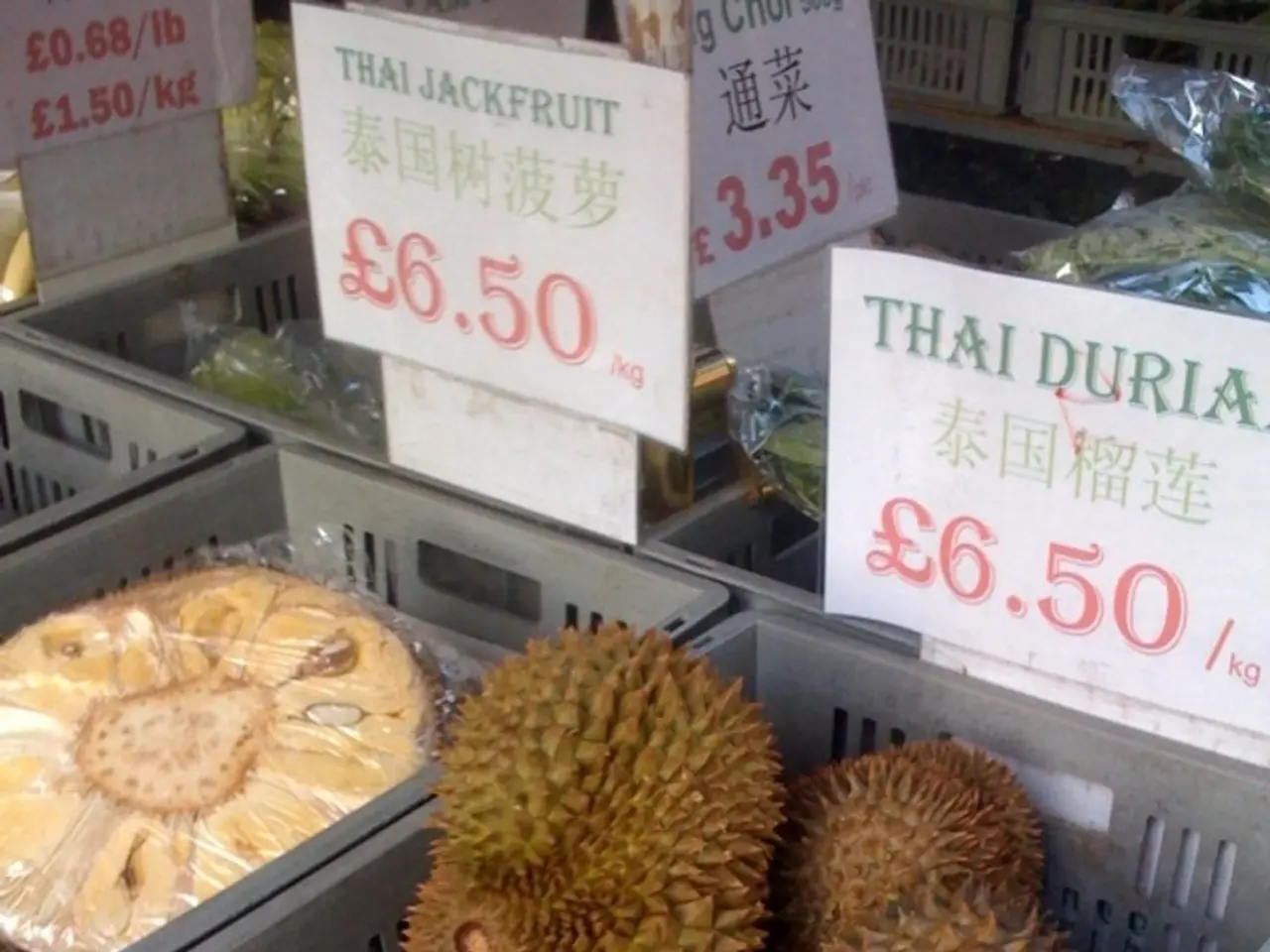Strategies for Increasing Market Impact for Smaller Mango Producing Farms
Effective Marketing Strategies for Small-Scale Mango Farms
Small-scale mango farms can thrive in today's competitive market by implementing a range of strategic approaches. Here are some key tactics to consider:
1. Building a Community: By fostering a sense of community, small-scale mango farms can retain customers and attract new ones. Offering subscription boxes, hosting online events, and inviting people for farm visits, events, or workshops can all help create an emotional connection with the farm.
2. Collective Marketing and Farmer Groups: Joining farmer groups or cooperatives can enhance bargaining power, facilitate access to markets, and reduce transaction costs. Collaborating with other farmers can lead to collective marketing efforts, improved information sharing, and better market access.
3. Improved Postharvest Management: Proper storage facilities and postharvest handling are crucial to reduce losses and maintain fruit quality. Methods like fruit bagging can reduce pesticide use, improve fruit appearance, and boost export value.
4. Marketing Information and Advisory Support: Regular visits from agricultural extension officers and clear communication about collective marketing opportunities, standards, and market demands can help farmers make informed decisions and engage more effectively in markets.
5. Quality Control and Sorting: Investment in sorting, grading, and packaging is essential to meet the standards required for export markets and value-added product markets. This ensures uniformity, cleanliness, and freedom from chemical residues and blemishes.
6. Value Addition through Processing: Developing processed mango products such as pulp, frozen mango, or juices opens additional revenue streams. The global processed mango products market is growing, presenting opportunities for small-scale farmers either directly or via partnerships with processors.
7. Seasonal Employment and Community Engagement: Mango farming generates seasonal employment in harvesting, sorting, transportation, and packaging, which strengthens the local economy and rural livelihoods.
8. Leveraging the Power of Social Media: Platforms like Facebook and Instagram are recommended for audience engagement and posting updates on harvest, farm activities, and the mango-growing process. User-generated content from farm visits can help spread the word about the business.
9. Partnering with Influencers: Look for influencers whose values align with the farm's and who have a large following. Collaborating with influencers and food bloggers can help promote the mango farm to a wider audience.
10. Offering Delivery Options: Ensuring fresh and undamaged delivery of mangoes and other products is crucial. Working with reliable courier services can help achieve this.
11. Branding and Packaging: Showcasing the farm's unique qualities and story can help build a strong brand that customers remember. Using eco-friendly materials for packaging can appeal to environmentally-conscious customers.
12. A Well-Designed Website: A well-designed website showcasing farm history, mango types, agricultural practices, and contact details is important for marketing the farm. It can help reach customers nationally or internationally and provide an easy-to-use online store.
By implementing these strategies, small-scale mango farms can enhance their marketing outcomes, increase profitability, and build a strong connection with their customers.
[1] Making Mango Marketing Work for Smallholder Farmers [2] Marketing Mangoes: A Guide for Small-Scale Producers [3] Women's Empowerment and Mango Production in India [4] Global Mango Processed Products Market [5] Mango Marketing Strategies for Smallholder Farmers
- In addition to marketing mangoes, small-scale farmers could consider diversifying their business by entering the lifestyle sector, offering eco-friendly home and garden products made from by-products such as mango wood furniture or food-and-drink items like mango-infused jams and syrups.
- To effectively reach consumers and promote a small-scale cooking business, utilizing social media platforms, partnering with food influencers, and maintaining a user-friendly website showcasing recipes and cooking tips can all contribute to earning a strong reputation in the food-and-drink industry.
- Small-business owners in the finance sector could provide services tailored to small-scale farmers, offering advice on financial planning, market analysis, and investment opportunities that support sustainable agriculture and lifestyle businesses, such as mango farming, cooking businesses, or home and garden enterprises.




